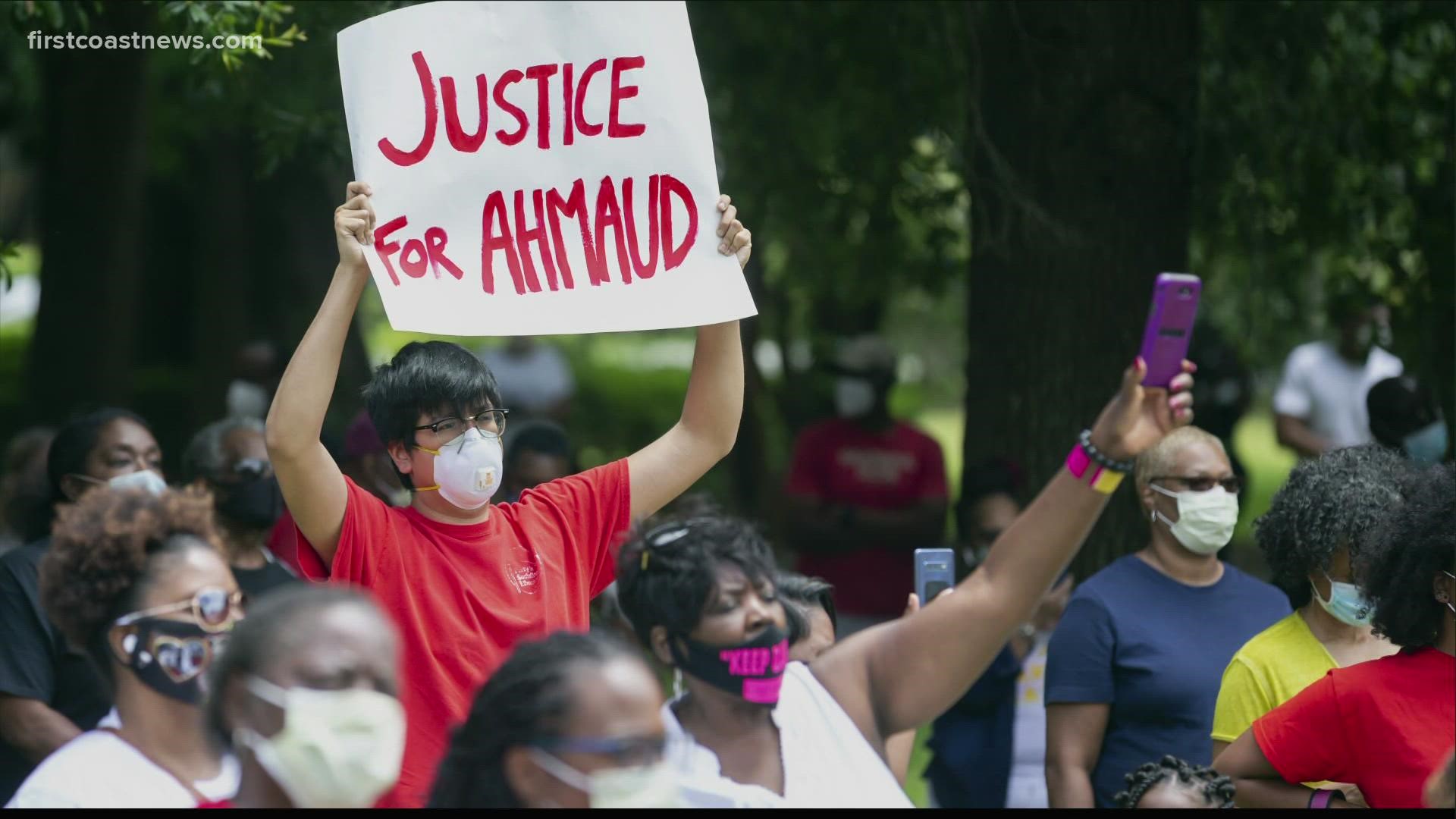BRUNSWICK, Ga. — (The story above is from a previous report)
As a second trial of three defendants already convicted of murdering Ahmaud Arbery gets underway this week, there are many questions swirling about the reasons for the seemingly duplicative proceeding.
What’s the difference?
Unlike their murder trial in state court, the new trial is a federal hate crimes case. Georgia did not have a hate crimes statute when Ahmaud Arbery was killed – it was just one of four states without one.
The state subsequently adopted a hate crime law, but the men could not be prosecuted retroactively under that law in state court.
What’s a hate crime?
Despite the name, it is not necessary for prosecutors to prove the three men actually “hated” Ahmaud Arbery; only that they committed the alleged crimes because of his race.
The three defendants, Travis and Greg McMichael and William “Roddie” Bryan, are charged with using force and threats of force to intimidate and interfere with Arbery’s right to use a public street because of his race. They are also charged with attempted kidnapping.
Greg and Travis McMichaels are charged with using, carrying or brandishing a firearm, and Travis McMichael is charged with discharging one.
Why is this a federal case?
Hate crimes are infrequently prosecuted and are difficult cases to prove, but they are also important, according to the Justice Department. Attorney General Eric Holder has said the cases are a priority.
They are filed in cases where the DOJ determines there is a national interest in the outcome and a sense that a conviction will advance the cause of social justice.
What’s the point?
If the three men are convicted of the federal charges, they would face life sentences, which they already have, after they were found guilty of murder in November. But a federal conviction could serve as a backstop, if the men were successful in appealing their state conviction.
If they are convicted on the federal charges, the judge would decide whether their sentences would be served concurrently or consecutively -- an arguably meaningless decree.
What happened to the plea deal?
A proposed plea deal that was ultimately rejected by the judge would have not only resulted in a conviction of the McMichaels, but an admission from them that they killed Ahmaud Arbery because of his race.
The Arbery family objected to terms of the deal that would allow the men to serve time in federal prison instead of a state penitentiary. The judge disliked the fact that it would bind her to a predetermined sentence. But Prosecutor Tara Lyons argued (unsuccessfully) for the deal. She said it “powerfully advances the larger interest of justice” because the McMichaels would confess “publicly in front of the nation that this offense was racially motivated.”
Since that plea was withdrawn, the men may still be convicted, but most likely without any admission of underlying racial motive.

